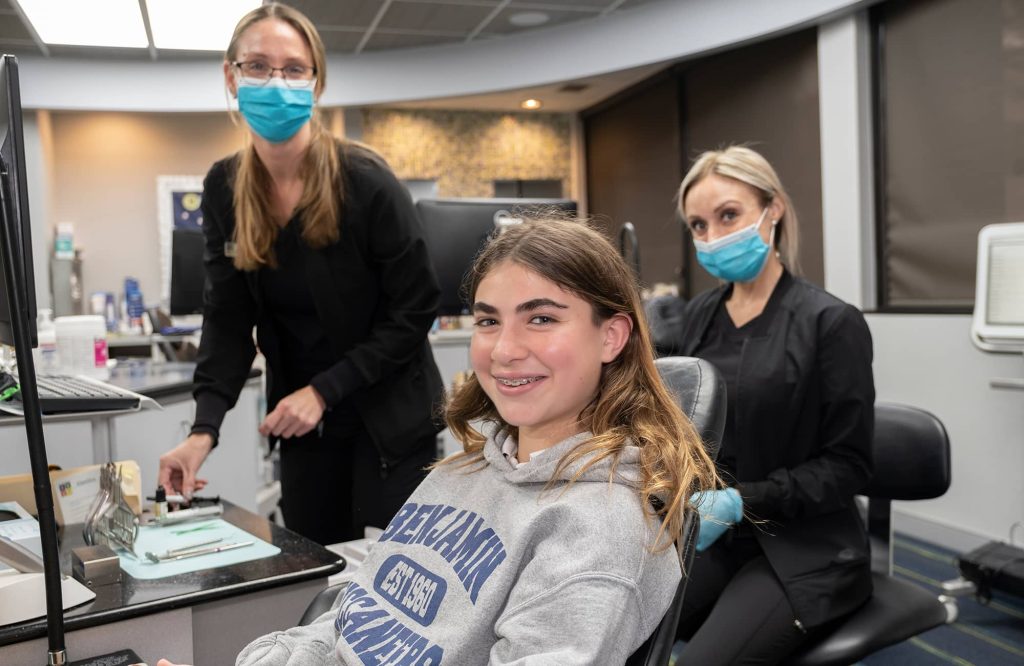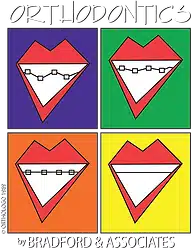Foods You Can and Can’t Eat With Braces

Adapting to life with braces involves several changes, notably in your eating habits. It’s essential to be aware of the types of foods that are compatible with braces and those that aren’t. This guide aims to assist you in making informed dietary choices throughout your orthodontic journey.
The Role of Braces and Dietary Adjustments
Braces are designed to gently realign your teeth by applying consistent pressure. Certain foods, especially those that are tough, sticky, or chewy, can interfere with this process. Consuming these foods might cause damage to your braces, resulting in discomfort and possibly prolonging your treatment.
What to Avoid When Wearing Braces
- Tough Foods: Items like nuts, hard candies, and ice can cause damage to the braces’ wires and brackets. It’s advisable to avoid these and be mindful with hard fruits and vegetables, such as apples and carrots. Instead, chop them into smaller, manageable pieces.
- Sticky Substances: Foods like gum, caramel, toffee, and other sticky sweets can cling to braces and are challenging to clean, heightening the risk of dental cavities. It’s best to avoid these types of food.
- Chewy Items: Foods that are chewy in nature, including bagels, licorice, and certain candies like taffy, can become entangled in your braces and potentially cause damage.
- Sugary Foods and Beverages: A high intake of sugar can lead to increased plaque around your braces, heightening the risk of tooth decay. Limiting sugary foods and drinks is advisable, and maintaining good dental hygiene is crucial.
- Biting into Foods: Foods that require a biting motion, such as corn on the cob and ribs, can dislodge or damage your braces. It’s safer to cut these foods off the cob or bone before eating.
Safe Food Choices for Braces Wearers
- Soft Fruit Varieties: Opt for fruits like bananas, berries, and grapes, which require minimal chewing and are safe for braces.
- Vegetables: Focus on eating cooked vegetables that are softer and more braces-friendly. Steamed or boiled vegetables, such as carrots, broccoli, and spinach, are excellent choices.
- Dairy Choices: Soft dairy products, including yogurt and cheese, are not only safe for braces but also provide necessary calcium.
- Gentle Breads and Grains: Choose soft breads, tortillas, and cooked grains like rice and pasta, which are easy on your braces.
- Tender Meats and Fish: Select soft meats and fish, such as meatballs and salmon, which are easy to chew and won’t damage your braces.
- Eggs: Eggs are a versatile option that is soft and safe for those with braces.
Eating Tips for Braces Wearers
- Smaller Portions: It’s beneficial to cut your food into small, bite-sized pieces to make chewing easier and reduce the risk of damaging your braces.
- Mindful Eating: Eat slowly and carefully to minimize the chances of harming your braces.
- Oral Hygiene Practices: Regularly brush and floss, especially after meals, to dislodge any food remnants from your braces.
- Dental Check-Ups: Keep up with your dental appointments for cleanings and check-ups to ensure the health of your teeth during orthodontic treatment.
Conclusion
Modifying your diet while undergoing orthodontic treatment is pivotal for the success and efficiency of your braces. By steering clear of foods that could harm your braces and opting for safer alternatives, you can ensure a smoother treatment process and healthier teeth. Remember, these dietary changes are only temporary and a small price to pay for a lifetime of straight, healthy teeth.
